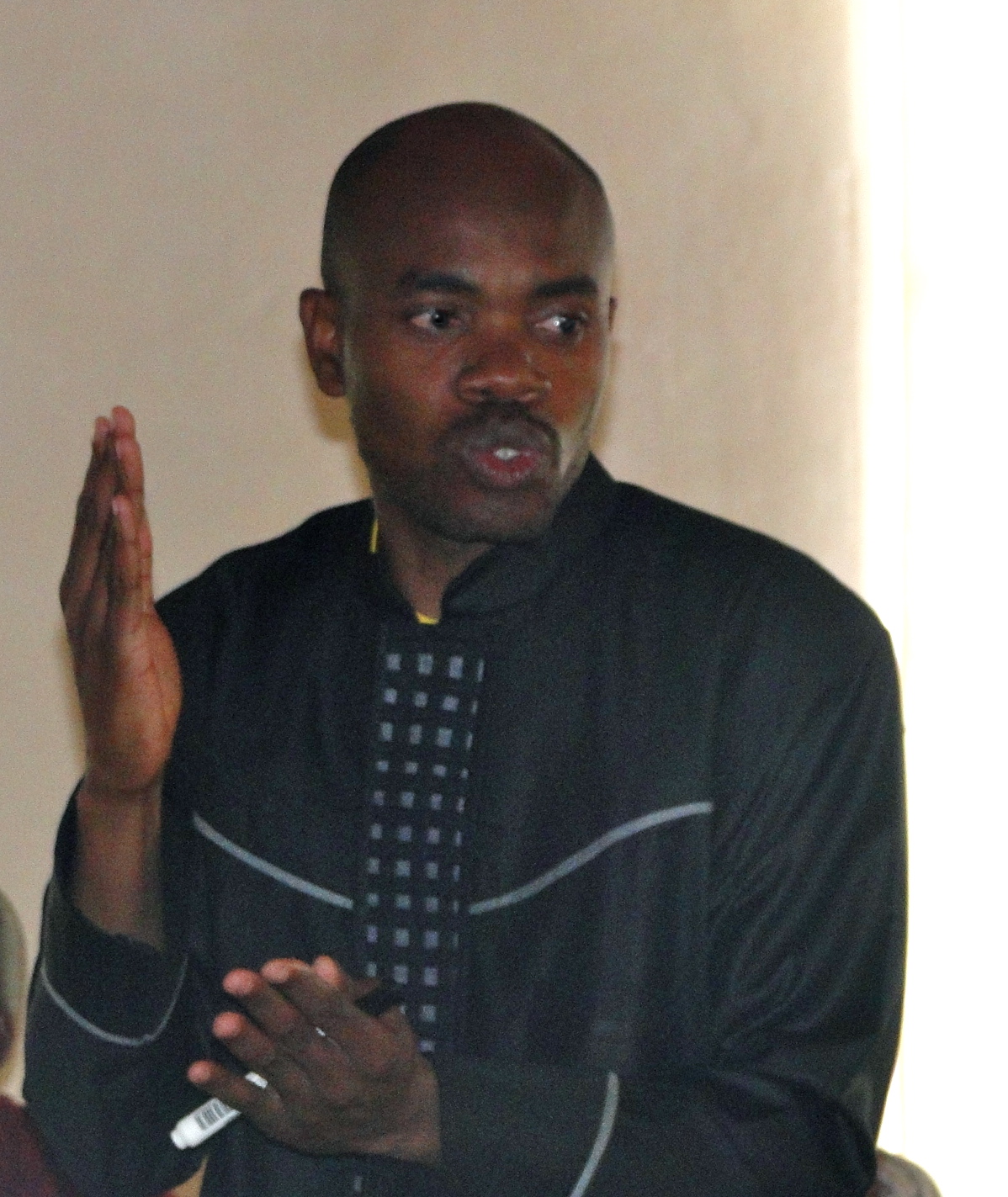By Christopher DeMarcus (The Cascade) – Email
Print Edition: November 13, 2013

The Democratic Republic of Congo (DR Congo) has been engulfed in extreme and violent conflict since Belgium’s King Leopold executed a vast system of exploitation and human rights atrocities in 1885. Leopold used the DR Congo as his own personal hunting ground, killing millions while looting the country of natural rubber and gold.
Systemic economic oppression and brutal warfare continue today, the results of both a century of colonialism and internal corruption.
Dr. Mulanda Jimmy Juma, a peace-builder from the eastern DR Congo, shared his experiences at UFV on November 6. Preventing violent conflict in the most volatile places on Earth, Juma has worked as a peace consultant in the DR Congo, Sudan, Venezuela, and many countries within the Eu-ropean Union.
“King Leopold had Congo as his own personal property,” Juma said, “until 1960, when the country earned independence. Then, after one year of independence, Congo fell into war.”
That war is still fuelled by external colonial powers, resource mining, and internal corruption.
In the heart of Africa, the DR Congo is still rich in rare earth minerals, diamonds, gold, copper, and lumber. In fact, the cellphone in your pocket is made of 20 per cent—or more—rare earth minerals mined in the DR Congo. The country provides resources for our laptops, computers, information networks, cars, labs, hospitals, and wedding rings. The world economy uses DR Congo commodities as economic building blocks, but very little returns home to its citizens.
In 1996, government rebels—of which there are many different factions—attacked Juma’s vil-lage, slaughtering over 1,000 civilians in two days.
“They shot at me, but no bullets hit my body … 1,000 people dead in two days. Can you imagine that in your home? My friends were killed. My brother was killed,” he said. “We need peace and everything else will fall into place.”
The DR Congo presents deeply complicated issues for academics and peace workers. Most define the problems as structural. Meaning, the trade systems set up with the DR Congo create a system that makes the country dependant on aid from the outside.
“Lack of capacity to value what you have internally is an element of dependancy in the community,” Juma said. “How can you start to build peace when you rely on external donors? When you are hungry there is no peace.”
The DR Congo’s resources are pillaged from the countryside, then laundered in other countries like China before being sent out to first-world markets. This system of forced dependancy has DR Congo citizens questioning how the rest of the world views their country.
“They want to be considered, first and foremost, as human beings,” he said.
[pullquote]“They shot at me, but no bullets hit my body … 1,000 people dead in two days. Can you imagine that in your home? ”[/pullquote]
He went on to discuss Non-Government Organizations (NGOs) and how they don’t all operate with the intention of building peace. NGOs are aid groups, sometimes faith-based or government-funded, that operate independently from government control.
“There was one NGO [in East DRC] that was teaching people to fix cars,” Juma explained. “But they didn’t have any cars in their village. It made for great pictures to send back to France and skilled workers, but no cars to fix!”
Juma went on to speak about his three-pronged approach to non-violent peace-building in the DR Congo.
First, the structural issues of economic independence must be addressed, so the Congo-lese may support themselves. Second, foreign NGOs should take authentic action to assist displaced peoples. And third, the virtues of democracy should be installed to remove internal corruption.
“The Congolese leaders have to play by the rules of democracy,” Juma explained. “When everyone has a role to play, peace will be more profitable than war.”
Twelve hours before Dr. Juma’s lecture, M23—a major rebel force in DR Congo—laid down arms in the region. However, the conflict in the DR Congo is complex with many warring factions involved in profiteering and plunder. M23 is one of the largest rebel groups, partly controlled by the Rwandan government. US Secretary of State John Kerry has threatened to reduce funding to Rwanda if it continues to fuel conflict in the DR Congo.
According to a 2007 report by the International Rescue Committee, the humanitarian crisis in the DR Congo has taken an estimated 5.4 million lives since 1998, or 45,000 every month. Children under five bear the heaviest burden, accounting for nearly 50 per cent of deaths.
Juma closed by responding to the question of how we build peace after the deep scars of human rights atrocities and continued exploitation.
“Accept that it happened. Begin personal healing, begin to build your capacity for peace. Be ready for the challenge,” he said. “Find the tools for dealing with your stress and trauma … [share them with] others.”

